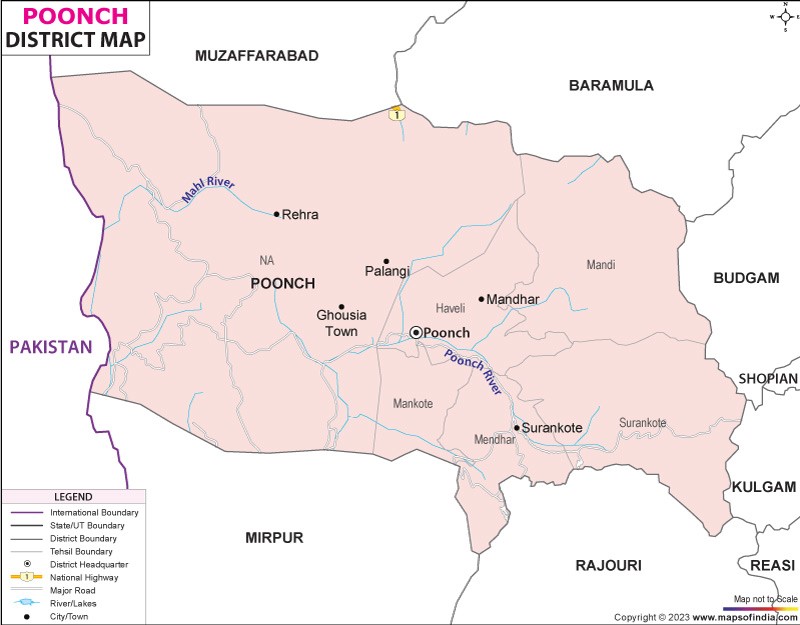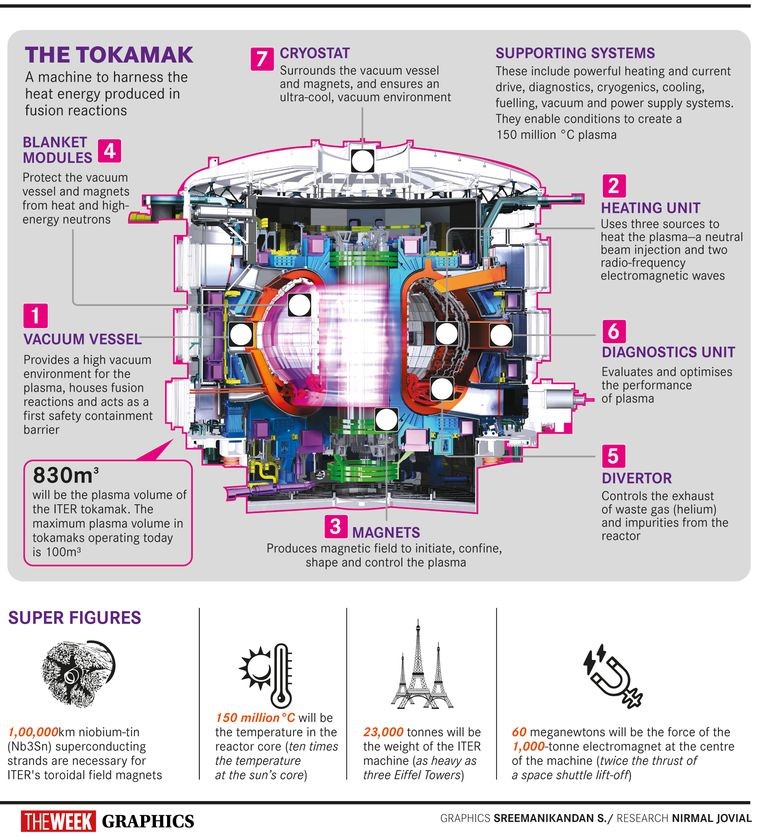|
One Liners 13-02-2025
|
|
Geography
|
|
Poonch District
- It is a border district of J &K situated on the Line of Control (LoC).
- Located in – West of State bordering Punjab and Himachal Pradesh.
- Major part – Occupied by Pakistan which is a part of Azad Kashmir territory.
- Separated from – Kashmir Valley by gigantic Pir Panjal range.
- Trade – Poonch holds a prominent place on the world map for trade along the LoC, particularly at the Chakka-Da-Bagh crossing.
- It is popularly known as Mini Kashmir.

|
|
Polity & Governance
|
|
Launched 41 new books under PM YUVA 2.0 (Pradhan Mantri Young, Upcoming and Versatile Authors)
- Launched in – 2022.
- Initiated by – Ministry of Education.
- Part of – India@75 Project (Azadi Ka Amrit Mahotsav).
- Theme – Democracy (institutions, events, people, constitutional values – past, present, future).
- Aim – An author mentorship programme to train young and budding authors (below 30 years of age) to promote reading, writing & book culture in the country and Indian writings globally.
- National Book Trust - It will be translated into other Indian languages ensuring the exchange of culture and literature, thereby promoting 'Ek Bharat Shreshtha Bharat'.
|
|
Market Intervention Scheme (MIS)
- Launched in – 1983.
- Initiated by – Ministry of Agriculture & Farmers Welfare.
- Umbrella scheme – Pradhan Mantri Annadata Aay Sanraks Han Abhiyan (PM-AASHA).
- Aim – To procure perishable agricultural product like tomatoes, onions, potatoes & fruits, where the MSP does not apply.
- Procurement limit of crops – Increased from the existing 20%-25%.
|
|
Prime Minister Employment Generation Programme (PMEGP)
- Launched in – 2003.
- Initiated by – Khadi and Village Industries Commission (KVIC).
- Nodal Ministry – Ministry of Micro, Small and Medium Enterprises (MSME).
- PMEGP – It is a major credit-linked subsidy programme.
- Aims – To Generate jobs by creating micro-enterprises in both rural and urban areas and connect traditional artisans with unemployed youth for local self-employment.
- Timeline – 5 years (2021-2026).
|
|
DND 3.0 (Do Not Disturb) App
- Launched by – Telecom Regulatory Authority of India (TRAI).
- Updated Features – An intelligent spam detection engine (for SMS only) to assist the subscriber in reporting.
- Key Features
- Crowdsourcing data to quickly detect unregistered telemarketers.
- Updates on actions taken regarding complaints within the App.
- Improved interface and setup for user convenience.
|
|
National Cooperative Consumers' Federation of India Ltd. (NCCF)
- Established on – 1965.
- Nodal Agency- Ministry of Consumer Affairs, Food and Public Distribution.
- Registered under – Multi-State Co-operative Societies Act, 2002.
- NCCF – It is an apex organization for the Consumer Cooperatives.
- Functions – The organization aims to enhance the consumer cooperative movement.
|
|
Security
|
|
Aero India 2025
- Organized by:
- Ministry of Defence
- Defence Exhibition Organisation.
- Department of Defence Production.
- Theme – The Runway to a Billion Opportunities
- Aero India – It is a biennial air show and aviation exhibition held in Bengaluru.
- Venue - Yelahanka Air Force Station.
- It is India's premier aerospace and defence exhibition where global aero vendors and the Indian Air Force (IAF) thrill the spectators with back-to-back aerobatic flying displays.
|
|
Manthan 2025
- Part of – Aero India 2025, Bengaluru.
- Organized by:
- Innovations for Defence Excellence – Defence Innovation Organisation (iDEX-DIO)
- Department of Defence Production.
- Manthan – It is a flagship annual defence innovation event.
|
|
Science
|
|
CE20 Cryogenic Engine
- Developed by – Liquid Propulsion Systems Centre of ISRO.
- CE20 – It is an indigenous cryogenic engine powering the upper stage of LVM3 ( 3 stage medium-lift launch vehicle).
- With a multi-element igniter under vacuum conditions, which simulates the engine ignition in the vacuum condition of space.
- ISRO Test – It also conducts successful sea level hot test of this engine, which paving the way for future missions.
|
|
Miscellaneous
|
|
World Radio Day
- It is celebrated on the 13th of February each year.
- Theme of 2025 – Radio and Climate Change.
- Aim – To raise awareness about the importance of radio in all its forms, particularly in rural and underserved areas.
- Celebrated – To acknowledge and celebrate the significance of radio in shaping society and culture globally.
- Recognize – The importance of radio in promoting information, education, and entertainment across diverse communities.
|
